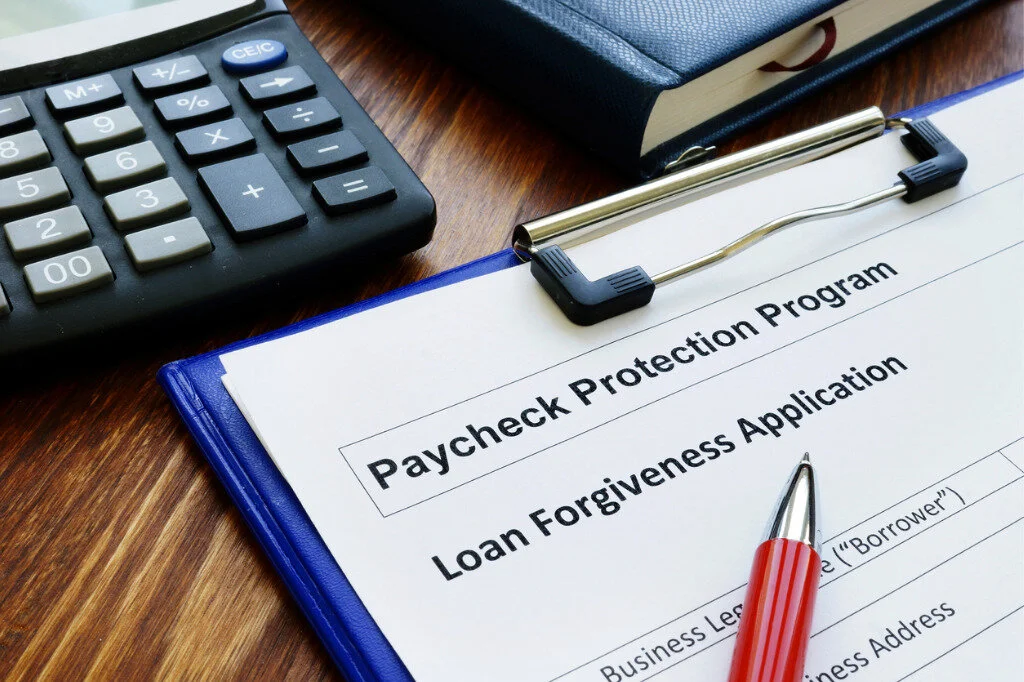Who is your landlord? New PPP guidance from SBA might change your forgiveness calculation
According to the Washington Business Journal;
New rules issued this week by the Small Business Administration could make some Paycheck Protection Program borrowers’ rent or mortgage interest payments ineligible for forgiveness.
Generally, the rules of the federal Covid-19 stimulus program deem rent and mortgage interest as expenses that count toward loan forgiveness so long as 60% of the proceeds are spent on payroll. But this week, the federal agency overseeing the program announced a new position on those outlays for businesses that have a landlord-tenant agreement between related parties.
The rule, issued Aug. 24, states rent paid to a related party is eligible for forgiveness only if the amount of forgiveness requested for that expense is “no more than the amount of mortgage interest owed on the property during the covered period that is attributable to the space being rented by the business.” The agreement had to be in place before Feb. 15.
Parties are considered related if they have any common ownership, no matter the size.
“Now you have to look to the level of mortgage interest expense during the covered period that lessor incurred,” said Terry Hoover, a partner at accounting firm Wipfli LLP. “That is the upper limit of how much rent can be included.”
To demonstrate the rent amount – if any – eligible for forgiveness, the SBA said the borrower must provide its lender mortgage interest documentation to back up the payments.
The agency went further to say mortgage interest payments to a related party will not be forgiven.
“PPP loans are intended to help businesses cover certain non-payroll obligations that are owed to third parties, not payments to a business’s owner that occur because of how the business is structured” the SBA reasoned. “This will maintain equitable treatment between a business owner that holds property in a separate entity and one that holds the property in the same entity as its business operations.”
But some advisers say these new regulations penalize some businesses and place them in a vulnerable position.
Hoover said a common arrangement in family-held businesses is that family members in a senior generation own real estate and lease it to their company. The next generation of the family often has a minority or majority interest in the company. If the real estate has been held for years, the debt on it might have been paid down or paid off.
“In that situation, unfortunately, if it’s a debt-free property that is being leased, then the rent that’s paid during the covered period is not an eligible forgivable cost,” Hoover said. “It effectively penalizes situations where people have managed their real estate conservatively and not maintained a large amount of debt against it.”
The issue the SBA said it was trying to protect against may arise, Hoover said. But the new rule will have a negative impact on many other businesses with different circumstances – such as generational operations.
Hoover added that the rule is a deviation from the agency’s prior position, which did not indicate otherwise qualifying mortgage interest payments would not be eligible for forgiveness.
“There are certainly valid financing agreements that were in place on Feb. 15 between related parties that were necessary in order to support the business, and yet the interest expense owed on those obligations is completely excluded from potential forgiveness,” Hoover said.
He added that the new rules apply to all borrowers who have not yet received notification from their lender about approval of their forgiveness application. Given the hesitation by many lenders to start processing forgiveness applications with potential program changes forthcoming, that’s most of the 5.2 million businesses that used the PPP for funding, Hoover said.
The SBA opened a portal Aug. 10 to accept forgiveness applications from lenders. The SBA will not say how many applications have been submitted so far, but lenders have said they are waiting to see what lawmakers decide about potential automatic forgiveness for loans of certain sizes.
Hoover said the SBA’s new regulation could affect the forgiveness calculation for businesses, particularly those that used the shorter eight-week covered period versus those using the full 24 weeks.
“The longer one chooses to let their covered period run, then, generally speaking, the more ability a borrower would have to compensate for this change if it applies to them and still end up with maximum potential forgiveness,” he said.

